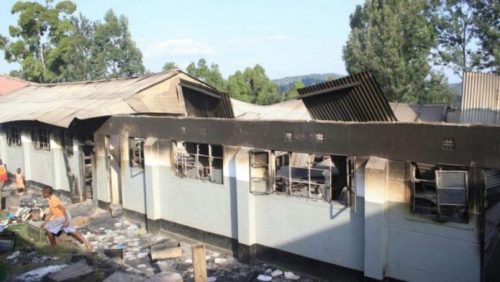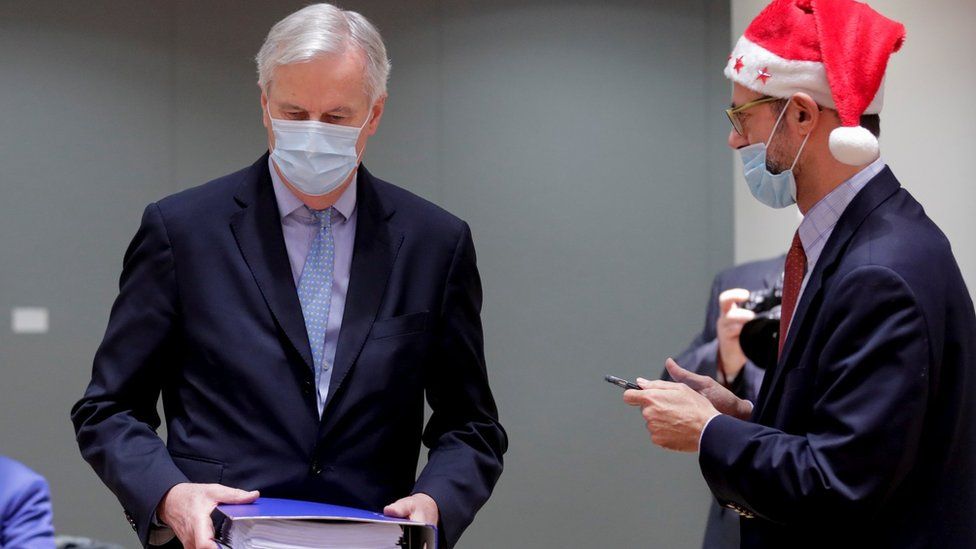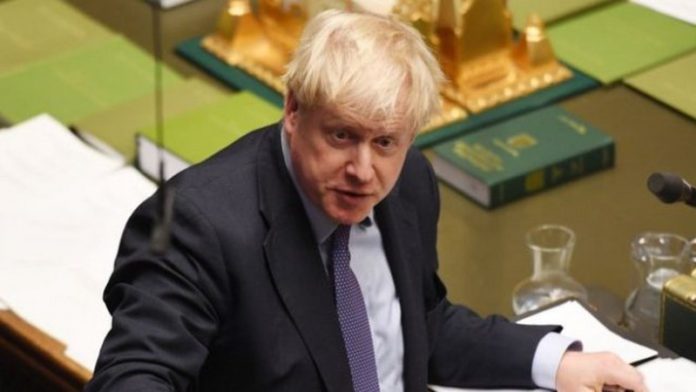Trump impeachment: Defence team set to present speedy case

Donald Trump’s defence lawyers are set to present evidence in the US Senate, denying charges he incited insurrection in the Capitol riots of 6 January.
The team has indicated it may take up only four of its 16 hours, and so move the impeachment trial to a speedy end.
Democrats spent two days putting their case, including video footage of the violence and arguing acquittal could see a repeat of the attack on Congress.
Acquittal is the likely verdict though, as most Republicans remain unmoved.
A two-thirds majority is required to convict Donald Trump in the evenly split 100-seat Senate.
At least 17 members of Mr Trump’s party would need to vote against him and although six have shown some movement that way, none of the others have, with many staunchly rejecting the accusation.
Donald Trump will not appear and testify in his defence on Friday.
If Mr Trump were convicted, the Senate could then vote to bar him from holding elected office again.
The Democratic-led House of Representatives voted to impeach Mr Trump last month – for a second time – accusing him of inciting supporters to attack the Capitol building to stop Joe Biden’s election victory being certified. Five people lost their lives.
Over the course of two days of Senate evidence this week, the Democrats argued Donald Trump had shown a pattern of condoning violence, did nothing on the day to prevent the riot and had expressed no remorse.
What will the defence team argue?
It hasn’t given any specific details but there are obvious lines of defence that have already been suggested.
The first will be simply freedom of speech. The Democrats tried to head that off on Thursday by arguing that this did not protect Mr Trump if his comments to supporters on 6 January and before incited them to attack Congress.
His lawyers will probably argue that there was no overt call for violence in Mr Trump’s remarks and that he could not be held responsible for the rioters’ actions.
The defence will also paint the impeachment as a partisan Democratic action motivated by political gain.
In their comments so far they have accused the Democrats of “tremendous hypocrisy”, with lawyer David Schoen saying their case lacked any real evidence. He said the video presentation-based evidence was like making “movies” and an “entertainment package”.
The Democrats have themselves asked the defence to answer why Mr Trump did not act quickly to stop the attack, send police reinforcements or later condemn the riots.
But it appears unlikely the defence will spend much time on this.
Its main plank may well be whether a former president should be impeached at all.
The Senate did vote on Tuesday to reject the argument that an ex-president should not be impeached, but many Republican senators still back it.
Senator Roy Blunt told the New York Times: “I get to cast my vote, and my view is that you can’t impeach a former president. And if the former president did things that were illegal, there is a process to go through for that.”
Senator Marco Rubio echoed this, saying impeaching a former president was not appropriate.
One thing the defence team will want to do is to avoid the sometimes baffling statement it gave to Congress earlier in the trial.
Lawyer Bruce Castor’s meandering 48-minute address was roundly criticised by Mr Trump’s opponents and supporters alike, and reportedly by the ex-president himself.
What has been the Democrats’ case?
New video footage of the riots was presented on both Wednesday and Thursday, as the Democrats took senators step-by-step through the events of the day of the riot.
The impeachment managers hoped the graphic shots of violent rioters, fleeing lawmakers and crushed police would propel conviction for incitement.
House prosecutor Joe Neguse made the case that Mr Trump was “not just some guy” making a controversial speech – he was a president addressing supporters who were “poised for violence [and] he struck a match”.
The arguments on Thursday were more in the “never again” vein.
Representative Jamie Raskin said: “My dear colleagues, is there any political leader in this room who believes that if he’s ever allowed by the Senate to get back into the Oval Office, Donald Trump would stop inciting violence to get his way?”
Congressman Ted Lieu said: “Impeachment, conviction and disqualification [from office] is not just about the past. It’s about the future. It’s making sure that no future official, no future president does the same exact thing.”
What happens next?
After the defence case, senators will then have up to four hours to present written questions to the legal teams.
That will be followed by a debate and vote over whether to allow witnesses – if either side wants them. If they do not, or if the vote fails, both sides will make brief closing arguments followed by the final vote on Mr Trump’s fate.
This could wrap up as early as Saturday night or by Monday at the latest – less than a week from start to finish.
Senators on both sides have indicated this is likely.
BBC.COM





